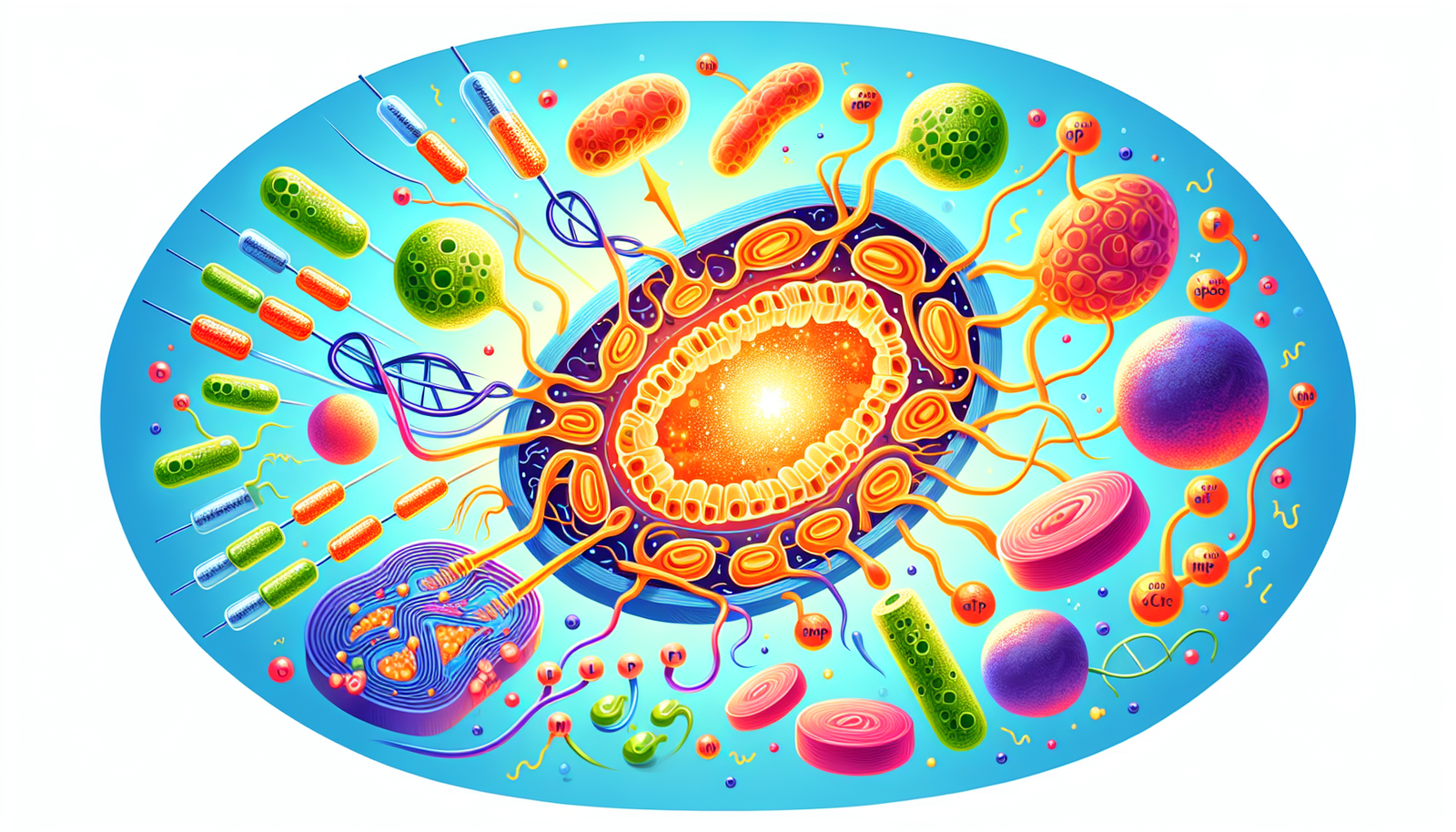The Science Behind Non-GMO Ingredients for Heart Health
The Importance of Non-GMO Ingredients
Understanding GMOs
Genetically Modified Organisms (GMOs) have been a topic of debate for years. These are organisms whose genetic material has been altered using genetic engineering techniques. The main aim is to enhance certain traits such as resistance to pests, herbicides, or to improve nutritional content. While some argue that GMOs ensure food security and agricultural efficiency, others raise concerns regarding their safety and potential long-term health effects.
Why Choose Non-GMO Ingredients?
Choosing non-GMO ingredients is often associated with a desire for purity in food sources. Many people opt for non-GMO because they believe it’s a healthier choice. Non-GMO products typically undergo rigorous testing to ensure that they haven’t been genetically altered. This can be appealing to consumers looking to avoid potential allergens or undesired substances in their diets.
How Non-GMO Ingredients Support Heart Health
The Connection Between Diet and Heart Health
Heart health is predominantly influenced by one’s diet. Factors like cholesterol levels, blood pressure, and overall nutritional balance all play a critical role in cardiovascular well-being. A diet rich in whole foods, essential nutrients, and low in processed ingredients is foundational for maintaining a healthy heart.
Nutrients to Focus On
Omega-3 Fatty Acids
Omega-3 fatty acids are essential fats that play a crucial role in heart health. They help reduce inflammation and lower blood pressure. Sources of non-GMO omega-3s include fatty fish like salmon or plant-based options like flaxseeds and walnuts. Fish oil supplements can also be an option, but it’s important to ensure they come from non-GMO sources.
Fiber
Fiber plays a vital role in heart health. It helps lower cholesterol levels and regulate blood sugar, which is essential for controlling weight and preventing heart disease. Non-GMO sources of fiber include whole grains, fruits, vegetables, and legumes. Eating a diet rich in these foods fosters a healthier gut microbiome, which is linked to improved cardiovascular health.
Antioxidants
Antioxidants, such as vitamins C and E, and other compounds found in fruits and vegetables, help fight oxidative stress and inflammation in the body. Non-GMO berries, leafy greens, and colorful vegetables are excellent sources of antioxidants. Incorporating a variety of these foods into your diet can help improve heart health.
Choosing Non-GMO Whole Foods
Fruits and Vegetables
Choosing organic or non-GMO fruits and vegetables is beneficial for heart health. These foods are often higher in nutrients and free from synthetic pesticides and fertilizers, which can have adverse effects on health. Aim for a rainbow of colors in your fruits and vegetables to ensure a wide range of nutrients.
Whole Grains
Whole grains like quinoa, brown rice, and oats can be excellent non-GMO choices. They provide essential nutrients, including B vitamins, iron, and magnesium. Additionally, consuming whole grains can help reduce the risk of heart disease by improving cholesterol levels and promoting a healthy weight.
Nuts and Seeds
Nuts and seeds are often overlooked sources of healthy fats and proteins. Almonds, walnuts, chia seeds, and hemp seeds, especially when sourced non-GMO, contribute important nutrients that support heart health. They are rich in unsaturated fats, fiber, and a variety of vitamins and minerals.
Potential Risks of GMOs for Heart Health
Allergens and Sensitivities
One reason many people choose non-GMO products is the concern over potential allergens introduced through genetic modification. Certain GMO foods may trigger sensitivities or allergic reactions in some individuals. It’s vital for those with known food allergies to stick to non-GMO and organic options to mitigate any risks.
Impact on Gut Health
The gut microbiome is increasingly recognized as essential for overall health, including heart health. Some studies suggest that GMOs might alter gut bacteria negatively, potentially leading to inflammation and metabolic issues. Opting for non-GMO foods can help support a balanced and healthy gut microbiome.
Pesticide Exposure
Many GMO crops are engineered to withstand herbicides and pesticides, thus increasing the likelihood of chemical residues on food. Chronic exposure to these substances may pose risks to heart health and contribute to other health complications. Non-GMO foods, especially organic, tend to be free of synthetic pesticide residues, making them a safer choice.
Building a Non-GMO Heart-Healthy Meal Plan
Breakfast Options
Overnight Oats
Start your day with overnight oats made from gluten-free, non-GMO oats, almond milk, chia seeds, and topped with fresh berries. This meal is rich in fiber, healthy fats, and antioxidants, making it an ideal heart-healthy breakfast.
Vegetable Smoothies
A smoothie made with non-GMO spinach, a banana, almond butter, and a scoop of non-GMO protein powder can provide a nutrient-dense start to the day. It’s packed with vitamins, minerals, and fiber while also being delicious and filling.
Lunch Ideas
Quinoa Salad
For lunch, a quinoa salad loaded with non-GMO mixed greens, cherry tomatoes, cucumbers, and a dressing made from olive oil and lemon can deliver a hearty dose of healthy nutrients while being heart-friendly.
Hummus and Veggies
Pairing non-GMO hummus with a variety of fresh, colorful vegetables makes for a satisfying lunch or snack. Hummus, made from non-GMO chickpeas and tahini, provides protein and fiber, both essential for maintaining heart health.
Dinner Selections
Grilled Salmon with Veggies
Grilled salmon, sourced from non-GMO farms, served with steamed non-GMO broccoli and brown rice can create a balanced and nutritious dinner. This meal highlights omega-3 fatty acids and ample fiber, promoting heart health.
Stir-Fried Tofu and Vegetables
A stir-fry using non-GMO tofu, a mix of colorful vegetables, and a sauce made from non-GMO ingredients can offer a delightful and healthy dinner option. Tofu is an excellent source of plant-based protein, and when combined with vegetables, it creates a nutrient-rich meal.
Practical Tips for Sourcing Non-GMO Ingredients
Reading Labels
One of the best steps you can take is to educate yourself on reading food labels. Look for products that are clearly marked as non-GMO or labeled with the Non-GMO Project Verified seal. This seal indicates that the product has met rigorous standards for avoiding GMOs.
Shopping at Farmers’ Markets
Visiting local farmers’ markets can be a fantastic way to find fresh, non-GMO produce. You can often speak directly to farmers about their growing practices, ensuring that you understand how your food is sourced.
Building Relationships with Local Producers
Establishing relationships with local producers can help you gain more knowledge about the origins of your food. Many farmers offer organic and non-GMO options that may not be readily available at larger grocery stores.
Buying Organic
While not all organic products are non-GMO, most non-GMO products follow similar standards to organic foods. Opting for organic can be a great way to reduce exposure to GMOs and harmful pesticides while benefiting from nutrient-dense foods.
The Future of Non-GMO Ingredients and Heart Health
Research and Development
As consumers become more aware of the benefits of non-GMO ingredients, research and industry focus on these products are likely to grow. Innovative agricultural practices and biotechnology research may pave the way for non-GMO products that provide improved nutrition without the risks associated with genetic modification.
Consumer Awareness and Trends
Consumer demand for non-GMO foods is on the rise. Many restaurants and food brands are responding to this demand by offering more non-GMO and organic options. This trend not only emphasizes the health benefits of non-GMO ingredients but also encourages sustainable farming practices.
Empowering Public Choices
By making informed choices and advocating for labeling transparency, consumers can promote a food system that supports non-GMO ingredients. Educating others about the benefits of non-GMO foods can amplify the collective impact on public health, particularly heart health.
Holistic Approaches to Heart Health
Non-GMO ingredients are just one part of the equation when it comes to heart health. A holistic approach encompassing regular exercise, stress management, and balanced nutrition plays a crucial role in cardiovascular well-being. By integrating non-GMO foods into a heart-healthy lifestyle, individuals can significantly enhance their overall health.







